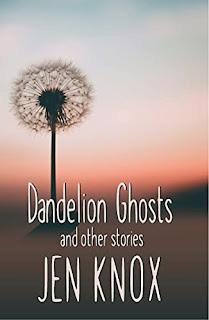Recently, I was asked if I thought writers were egotistical and self-indulgent by nature. A student, who admitted to despising the very act of writing essays said that he felt writers are full of themselves, and he smartly asked if I agreed before suggesting he be dismissed of an essay assignment. If I were teaching philosophy, I might have given him an A+ for the class, told him to go home. Instead, let's just say that I said something incredibly concise, smart and profound in response, but I made him turn in the paper. The fact is, his question has stayed on my mind and I wanted to address it here, in more depth.
According to
Freud
, the Ego is the rational part of the brain, the bridge between reality’s limitations and the Id, which contains a person’s passions and instinctual drives. The way the word ego is commonly used, it implies a person is full of self-rationalization or more simply put, is full of ones self. Many times writers and other artists are accused of being egotistical, which to me, makes sense. I mean, if a person that spends hours recording thoughts that he or she deems worthy of an audience, there has to be some ego there—otherwise how could that person rationally believe those thoughts are important enough to share?
I like to think that a good writer puts the ego aside when writing a draft, and simply attempts to record passions, deep-seated beliefs and desires, and that revision is the ego’s place to examine and rationalize such thoughts. Or, if we’re talking non-fiction, a more philosophical take on writing, the writer will actually question his or her motivations and attempt to step outside or at least briefly try to imagine a view that is counter to what is instinctual.
Personally, I am drawn to memoir and personal essays, as a reader, for this very reason—the form insists upon self-examination and reflection that extends beyond mere
navel-gazing
. When it comes to fiction, the topic is more nuanced, but I think even the best novels and short stories have enough shaded meaning that they can be discussed and argued rather than taken literally as social commentary or a veiled personal story.
I guess what I’m trying to say is that ego might drive us to the very act of writing, but the willingness of a writer to put said ego aside, to step outside of it for even a moment, is what separates (apart from the obvious: craft, word choice, etc…) a strong story from the more common preachy writing that often finds a predictable future: from computer screen or notebook to slush pile and eventually, the trash can or recycle bin.
#


I think writers have a tendency to be self-absorbed. We have to be, to a certain extent, if we want to make any progress in our careers. But as for "full of themselves", I think that's an individual trait. Not necessarily all writers have this, but some of them do for sure.
ReplyDeletePeople are full of themselves in any profession.
ReplyDeleteI think you have to have some confidence in yourself in order to do anything. Speaking feeely, "yes I have a healthy ego." I love to hear praise about what I do, I think we all want that. I personally think the kid just wanted to get out of some work, so his ego is engaged and working well. I do feel that those who are very fluent in the English language, sometimes use words that the vast majority don't comprehend, thereby sounding, full of themselves. When I read a book I want to be taken on a trip, not get tripped. Sure, learning words is great, but just really listen to a common conversation and you'll see how people actually talk. I firmly believe in, keeping it understandable, entertaining and fluid.
ReplyDeleteYes, the student was just trying to get out of work, but I think he does have a point. It does take some ego to think we have something new to say, what with all the good writing out there.
ReplyDeleteI own up to a certain amount of ego, too.
It is what it is. But word choice and fluency, Anonymous, is exactly what I meant. A person can use big words or not, that doesn't usually trip me up, but like you said, having a piece of writing really flow is not as easy at it looks. A certain amount of craft and training (even if it's self-training is involved). Many writers over-estimate their ability to do this very thing. Whereas those that don't over-estimate the self, I think, achieve greatness.
oooh... Alex said it... it's everywhere.
ReplyDeleteBut I'll own up to a certain amount of ego, and a little bit of everything else too. Got to keep it balanced, that's the key.